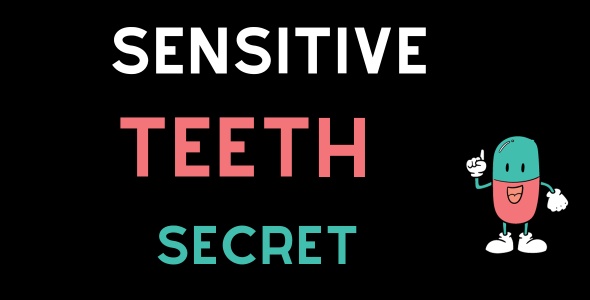Learn effective strategies on how to deal with sensitive teeth. Our comprehensive guide provides insights and solutions to alleviate tooth sensitivity for a more comfortable life.
Sensitive teeth can be a real pain, literally! If you’ve ever cringed while sipping a hot or cold beverage, you understand the discomfort that tooth sensitivity can bring. In this comprehensive guide, we will explore how to deal with sensitive teeth effectively. From understanding the causes to finding practical solutions, you’ll discover everything you need for a more comfortable and pain-free life.
Introduction
Dealing with sensitive teeth is a common dental concern. It occurs when the protective enamel on your teeth we ars down, exposing the sensitive dentin underneath. This can lead to discomfort and pain when your teeth come into contact with hot, cold, sweet, or acidic foods and beverages.
Understanding Tooth Sensitivity
To effectively address sensitive teeth, it’s essential to understand the root causes. Let’s explore the factors that contribute to tooth sensitivity:
Enamel Erosion
- Acidic Foods and Drinks: Consuming a diet high in acidic foods and drinks, such as citrus fruits and sodas, can erode tooth enamel over time.
- Brushing Habits: Brushing too vigorously or using a hard-bristle toothbrush can wear down enamel and contribute to sensitivity.
Gum Recession
- Gingivitis: Untreated gum disease can lead to gum recession, exposing the tooth’s sensitive roots.
- Aging: As we age, gum recession becomes more common, increasing the risk of sensitivity.
Teeth Grinding
- Bruxism: Teeth grinding or clenching can gradually wear down enamel, leading to sensitivity.
- Stress: Stress is a common trigger for bruxism, so managing stress can help prevent sensitivity.

How to Deal with Sensitive Teeth
Now that we’ve explored the causes, let’s delve into practical steps to deal with sensitive teeth effectively.
Choose the Right Toothpaste
Select a toothpaste specifically designed for sensitive teeth. These toothpastes contain ingredients that help block pain signals to the nerves in your teeth.
Soft-Bristle Toothbrush
Opt for a toothbrush with soft bristles to reduce enamel wear during brushing. Brush gently, using a circular motion.
Fluoride Mouthwash
Rinse with a fluoride mouthwash to strengthen tooth enamel and reduce sensitivity.
Avoid Acidic Foods
Limit your consumption of acidic foods and drinks to protect enamel. If you do indulge, rinse your mouth with water afterward.
Wear a Mouthguard
If you grind your teeth at night, consider wearing a mouthguard to protect your enamel.
Dental Checkup
Regular dental checkups are crucial for addressing sensitivity. Your dentist can recommend treatments like dental sealants or fluoride varnishes.
FAQs about Dealing with Sensitive Teeth
Can tooth sensitivity be cured?
While tooth sensitivity can be managed and alleviated, it may not always be completely cured. Effective dental care and lifestyle changes can significantly reduce sensitivity.
Is tooth sensitivity a sign of a more serious dental problem?
Tooth sensitivity can sometimes indicate an underlying dental issue, such as a cavity or gum disease. It’s essential to consult your dentist to rule out any serious problems.
How long does it take to see improvements in tooth sensitivity?
You may start to notice improvements in tooth sensitivity within a few weeks of following sensitivity-reducing practices. However, it’s essential to maintain these habits for long-term relief.
Are there natural remedies for sensitive teeth?
Natural remedies like oil pulling and desensitizing toothpaste can provide relief for sensitive teeth. However, consult your dentist before trying any home remedies.
Can I still enjoy hot and cold foods with sensitive teeth?
With proper care and sensitivity management, you can continue to enjoy hot and cold foods without excessive discomfort.
When should I see a dentist about sensitive teeth?
If you experience persistent or severe tooth sensitivity, it’s best to schedule a dental appointment promptly to determine the cause and receive appropriate treatment.
Conclusion
Dealing with sensitive teeth doesn’t have to be a constant source of discomfort. By understanding the causes of tooth sensitivity and implementing practical strategies, you can enjoy a pain-free smile and indulge in your favorite foods and beverages without worry.
Remember, maintaining good oral hygiene and seeking professional dental care when needed are key to managing sensitive teeth effectively.
Key Points:
- Not a Professional Doctor: The author of this blog is not a professional doctor, and the information presented here should not be construed as medical advice.
- Research-Based Information: All the content on this blog is the result of thorough research, including the examination of reputable sources, medical literature, and expert opinions.
- No Responsibility for Problems: The author and the blog contributors are not responsible for any adverse effects, complications, or health issues that may arise from the use of the information provided on this blog.
- Consult Your Personal Doctor: It is essential to consult with a qualified healthcare professional or your personal doctor before making any medical decisions or taking any medications. This blog should not be used as a substitute for professional medical guidance.
- Guidance Only: The information on this blog is intended to offer guidance and general knowledge about medicine, its uses, potential side effects, and prices. It is not a replacement for personalized medical advice from a healthcare professional.


No comments yet